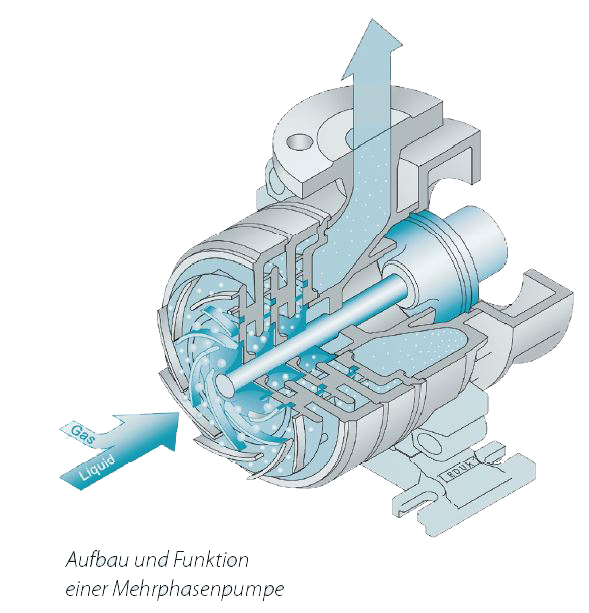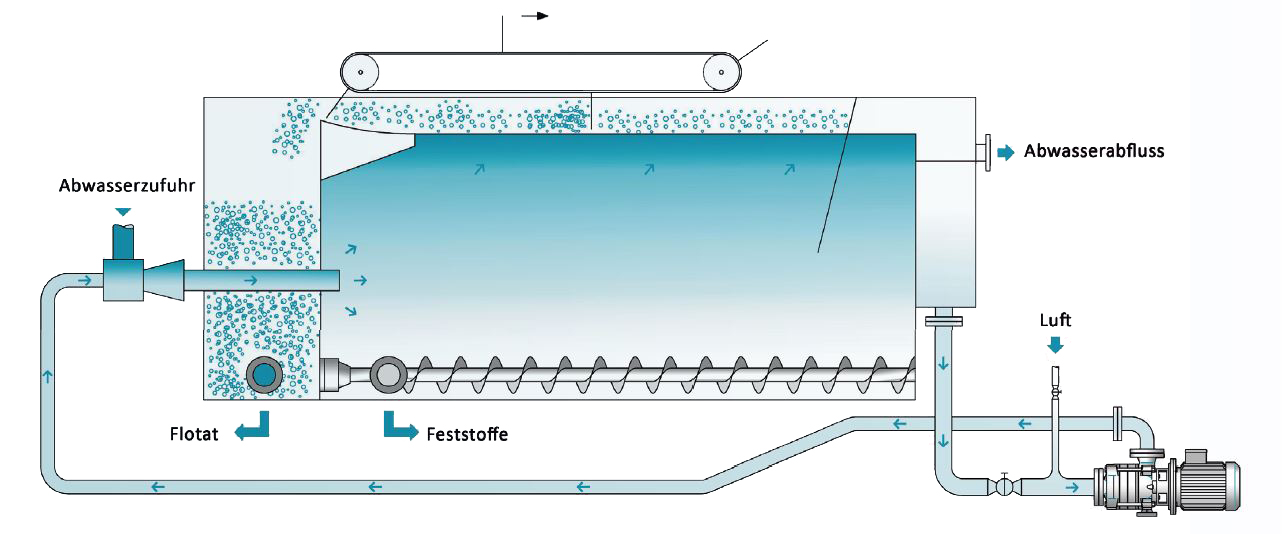multiphase pumps

Multiphase pumps clearly stand out from conventional centrifugal pumps in its features. The approach here is to not only apply the pumps to foster liquids, but also to mixture liquid gas and gas enrichment as dynamic mixer. Thereby has the pumps concept almost nothing in common with the standard pump.
Even the mode of operation does no longer comply with the established doctrine: the multiphase pumps are being slightly reduced on suction side to be able to independently ingest gas proportions. In standard pumps, this leads inevitably to cavitation.

Initially, the multiphase pumps can be used anywhere where gassing liquids would lead to process disturbances. Standard pumps are overstrained with the transport of gas proportions and can, in case of doubt, run dry. The result is system failure. Another wide field of application is the gas enrichment. Many processes in the chemical industry and in process engineering require the entry of various gases into various liquids. Here, conventionally, the work is still done with static mixers or pressure vessel concepts. This can be dropped when using Edur’s multiphase pumps.
Application as dynamic mixer
Multiphase pumps assume here the gas enrichment of liquids. The supply of the gas takes place in the suction line respectively directly into the suction pieces of the pump. If the pressure of the upcoming gas is below the separated upcoming gas, the pump solely needs to be throttled on the suction side. An increase of the gas pressure is lapsing. The pump works as a dynamic mixer, since due to the rotation of the special impellers, the gas proportion merges into solution depending on used operation mode. Typical application areas are treatment of oil-water emulsions, grease separations, phosphate precipitation and heavy metal precipitation as well as final clarification in biological treatment plants.

Typical applications of our multiphase pumps:
- Dissolved air flotation with a pressure saturation in the style of VDMA standard sheet 24430
- Ventilation (bioreactors)
- Ozonisation
- Oil-water separation
- Lime trap in the paper industrie
- Raw material extrction (e.g. copper extraction)
- Treatment of oil-water emulsion
- Grease separations, phosphate precipitation and heavy metal precipiration as well as final clarification in biological treatment plants
The use of multiphase pumps brings many advantages:
- The reduction of the plant components and the simplifictaion of the plant concept result in lower investments and higher opertaional reliability. Compared with conventional plant concepts are compressors, pressure vessels and elaborate control systems no longer needed.
- The high efficiency improves the energy balance and reduces the operational costs.
- The high grad of solution of the applied gases improve the substance yield. A good control behavior and a wide range of application of the multiphase pumps lead to a guideline conform operation mode and prevent uneconomical investement processes.
- The process reliabilty increases significantly.
One example is a local treatment plant in the U.S., in which the annual energy costs were able to be reduced by 200,000 Euros. The initial situation is represented as follows: eight circulation pumps were set up with 160 kW each, additionally, four compressors with 7,5 kW each, which means 1310 kW were needed in total. After changing over to the system with twelve multiphase pumps with 22 kW each without compressors is currently being consumed 254 kW in total. This leads to an energy saving of 1046 kW per working hours.